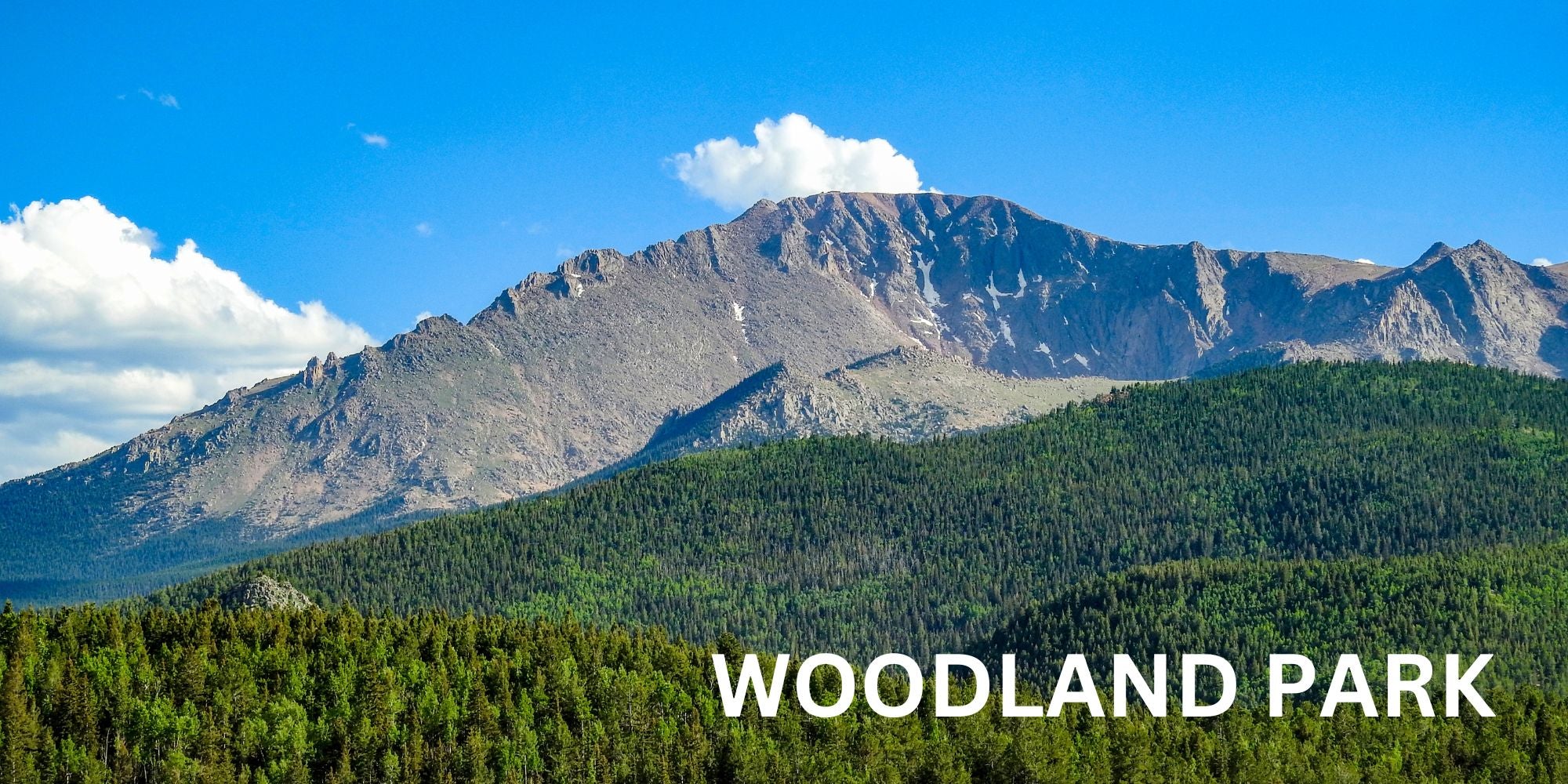
A charming mountain town located just outside of Colorado Springs, Woodland Park is at a high elevation that causes problems for visitors. As a high-altitude based company in Colorado, we'll share everything you need to know about Woodland Park altitude and six top tips to avoid altitude sickness.
Woodland Park altitude sits at 8,481 feet above sea level. This is significantly higher than even Colorado Springs only 18 miles away that is 6,035 feet high.
With Woodland Park altitude so high, visitors should be well prepared for their trip.
Yes, Woodland Park is considered high altitude.
Mountain Medicine categorizes high altitude past 4,900 feet, which Woodland Park well exceeds. At 8,481 feet, Woodland Park is not only high altitude but surpasses many other mountain towns including Steamboat Springs, Vail, Aspen, and Estes Park.
Woodland Park is part of the Rocky Mountains, and sits on the north side of the world renowned Pikes Peak mountain which summit reaches 14,115 feet high.
The elevation of Colorado Springs is 6,035 feet, which puts Woodland Park 2,446 feet higher at 8,481 feet.
Yes, you can get altitude sickness in Woodland Park.
While in Denver it's common that visitors can altitude sickness where it's only 5,280 feet high, University of Michigan wrote that altitude sickness starts at around 6,000 feet.³ This puts Woodland Park at a high risk elevation.
When you travel to higher elevations, the lower the oxygen which can cause hypoxia and altitude sickness.
Woodland Park can have nearly 25% less oxygen than found at sea level.² This puts the body in a deficit which can lead to Woodland Park altitude sickness.
Symptoms of Woodland Park altitude sickness may include:
These symptoms of Woodland Park altitude sickness usually develop within 6-24 hours. Be on high alert for any of these signs and read our best tips below.
With the breathtaking views of Woodland Park come high-altitude struggles.
As a local-based Colorado company with over a decade of experience, we'll share with you our best tips to improve your Woodland Park experience.
Here's 6 Tips To Avoid Woodland Park Altitude Sickness:
To conclude, following these tips can improve your experience and help avoid Woodland Park altitude sickness — including moderate physical activity, ascending slowly, getting maximum hydration, avoiding alcoholic drinks, getting plenty of sleep, and boosting antioxidants.

Elevate your vitality levels, recover faster, and conquer peaks with this trusted supplement — Zaca chewables. Our chewable offer sustained energy for your mountain escapades. Feel the rush as your body is invigorated, ensuring you make the most of your alpine adventures. Made with a delightful berry taste and in on-the-go packets for an easy-to-use experience. Open a packet and take 2-4 chewables when needed. Try Zaca's chewable supplement today and fuel your mountain escapades.
SOURCES:
1. Woodland Park Colorado Elevation
https://en.wikipedia.org/wiki/Woodland_Park,_Colorado
2. Oxygen Levels at Altitude
https://wildsafe.org/resources/ask-the-experts/altitude-safety-101/oxygen-levels/
3. Altitude Sickness University Of Michigan Health Service
https://uhs.umich.edu/travel-altitude-sickness
4. Why Do You Need to Drink a Lot of Water at a High Altitude?
https://www.livestrong.com/article/360485-how-to-train-for-high-altitude-hiking
5. Effects of Alcohol
https://www.ahajournals.org/doi/full/10.1161/01.HYP.29.6.1278#
6. Sleep: The Secret Ingredient of Injury Recovery
https://www.orthocarolina.com/media/sleep-the-secret-ingredient-of-injury-recovery
7. High altitude and oxidative stress
https://pubmed.ncbi.nlm.nih.gov/17482529/
8. Effect of high altitude (7,620 m) exposure on glutathione
https://pubmed.ncbi.nlm.nih.gov/11320641/
9. Oxidative Stress and Diseases Associated with High-Altitude Exposure
https://www.ncbi.nlm.nih.gov/pmc/articles/PMC8868315/
10. Woodland Park Altitude
https://www.city-woodlandpark.org/31/Living-Visiting